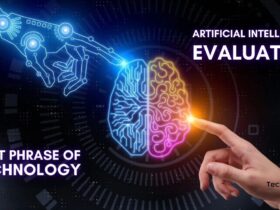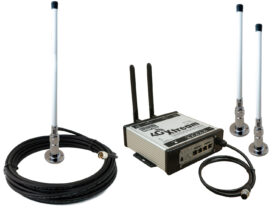Quantum computing in electrical engineering leverages quantum bits to perform computations. It promises faster processing and problem-solving capabilities.
Quantum computing represents a revolutionary leap in electrical engineering. Traditional computers use binary bits (0 and 1), while quantum computers use quantum bits (qubits) that can exist in multiple states simultaneously. This allows quantum computers to solve complex problems more efficiently than classical computers.
Engineers focus on developing stable qubits, error correction methods, and scalable systems. Quantum computing has potential applications in cryptography, optimization, material science, and artificial intelligence. Understanding and developing quantum technologies can lead to breakthroughs in various fields, making it a pivotal area of research and innovation in electrical engineering.

Introduction To Quantum Computing
Quantum computing is a groundbreaking technology. It is set to revolutionize various fields, including electrical engineering. Traditional computers use bits, which can be 0 or 1. Quantum computers use qubits, which can be both 0 and 1 simultaneously. This unique feature allows quantum computers to solve complex problems faster than classical computers.
Basics Of Quantum Mechanics
Quantum mechanics forms the backbone of quantum computing. It deals with the behavior of particles at the atomic and subatomic levels. Key principles include superposition and entanglement.
- Superposition: A qubit can be in multiple states at once.
- Entanglement: Qubits can be interconnected. The state of one qubit affects the state of another, no matter the distance.
These principles allow quantum computers to process a vast amount of information simultaneously. This is something classical computers cannot achieve.
Quantum Vs Classical Computing
Classical computers use bits as the smallest unit of data. Bits are either 0 or 1. Quantum computers use qubits, which can be both 0 and 1 at the same time.
| Aspect | Classical Computing | Quantum Computing |
|---|---|---|
| Basic Unit | Bit | Qubit |
| State | 0 or 1 | 0 and 1 simultaneously |
| Processing | Sequential | Parallel |
Quantum computers can solve certain problems much faster. They have the potential to transform electrical engineering.
For example, they can optimize power grids and design better materials. Their ability to handle complex calculations makes them invaluable.

Key Concepts In Quantum Computing
Understanding quantum computing is essential for electrical engineering. Quantum computing uses quantum bits or qubits. These have unique properties that differ from classical bits. Let’s explore the key concepts in quantum computing.
Qubits And Superposition
Qubits are the basic units of quantum computing. Unlike classical bits that are either 0 or 1, qubits can be both 0 and 1 at the same time. This property is called superposition.
Superposition allows qubits to perform many calculations simultaneously. This makes quantum computers much faster than classical ones.
| Classical Bit | Qubit |
|---|---|
| 0 or 1 | 0, 1, or both |
Entanglement And Quantum Gates
Entanglement is another key concept in quantum computing. When qubits become entangled, the state of one qubit depends on the state of another. This means changing one qubit will affect the other, even if they are far apart.
Quantum gates are used to manipulate qubits. These gates are similar to logical gates in classical computers but operate on qubits. Quantum gates perform operations based on the superposition and entanglement properties.
- Hadamard Gate: Creates superposition
- CNOT Gate: Creates entanglement
- Pauli-X Gate: Flips the state of a qubit
These concepts form the foundation of quantum computing. Understanding them is crucial for electrical engineering and other fields. Quantum computing can revolutionize technology, making it an exciting area of study.
Quantum Algorithms
Quantum algorithms are special instructions for quantum computers. They solve problems faster than classical methods. In electrical engineering, these algorithms bring new possibilities.
Shor’s Algorithm
Shor’s Algorithm is famous for factoring large numbers. Classical computers struggle with this task. Shor’s algorithm can do it quickly. This is important for cryptography. It can break encryption codes that protect data. This has big implications for data security.
In electrical engineering, fast factoring helps optimize power systems. It can also improve signal processing. Engineers can design better circuits. This leads to more efficient electronics.
Grover’s Algorithm
Grover’s Algorithm is used for searching databases. Classical search methods take a long time. Grover’s algorithm can find items faster. It works in quantum computers, making searches speedy.
For electrical engineers, fast search means quicker designs. Engineers can find the best components faster. This improves the design of circuits and devices. It also helps in optimizing network operations.
| Algorithm | Classical Use | Quantum Advantage | Electrical Engineering Impact |
|---|---|---|---|
| Shor’s Algorithm | Factoring large numbers | Much faster than classical | Improves encryption and circuit design |
| Grover’s Algorithm | Database searching | Speeds up searches | Enhances component selection and network operations |
Impact On Electrical Engineering
Quantum computing is revolutionizing the field of electrical engineering. It offers new ways to solve problems. Quantum computers process information in quantum bits or qubits. This makes them much faster than classical computers. Electrical engineers are leveraging this technology to improve several aspects of their work. Let’s explore how quantum computing impacts circuit design and signal processing.
Circuit Design
Quantum computing aids in creating more efficient circuits. Traditional circuits are limited by classical physics. Quantum circuits use qubits, offering more computational power. This results in faster and more efficient designs.
- Increased Speed: Quantum circuits perform calculations at unprecedented speeds.
- Reduced Power Consumption: Qubits require less energy compared to classical bits.
- Enhanced Miniaturization: Smaller components lead to more compact circuit designs.
These improvements make electrical devices faster and more efficient.
Signal Processing
Signal processing benefits greatly from quantum computing. Traditional methods struggle with large datasets. Quantum computing handles these effortlessly.
- Improved Data Analysis: Quantum algorithms analyze signals more effectively.
- Enhanced Filtering: Quantum filters remove noise better than classical ones.
- Faster Processing: Quantum computers process signals at lightning speed.
These advantages lead to clearer signals and better communication systems.
Quantum computing is transforming electrical engineering. It offers faster, more efficient solutions in circuit design and signal processing.
Quantum Hardware Development
Quantum hardware development is revolutionizing electrical engineering. It brings new possibilities and improves existing systems. Two critical components are quantum chips and quantum sensors. They are at the heart of this innovation.
Quantum Chips
Quantum chips are the brain of quantum computers. They process information using quantum bits, or qubits. Qubits can represent both 0 and 1 simultaneously. This property is called superposition. It allows quantum computers to solve complex problems faster.
Major tech companies invest in quantum chip research. Their goal is to make powerful and reliable quantum processors. The most advanced quantum chips use superconducting materials. These materials conduct electricity with zero resistance at very low temperatures.
Here’s a brief comparison of classical and quantum chips:
| Aspect | Classical Chips | Quantum Chips |
|---|---|---|
| Bits | Binary (0 or 1) | Qubits (0, 1, or both) |
| Processing Speed | Sequential | Parallel (due to superposition) |
| Power Consumption | Higher | Lower |
Quantum Sensors
Quantum sensors detect minute changes in physical quantities. They are incredibly sensitive and precise. These sensors can measure electric and magnetic fields, temperature, and pressure. They use quantum properties like entanglement and superposition.
Quantum sensors have many applications in electrical engineering. They improve the accuracy of power grids. They also enhance the performance of communication systems. Here are some key benefits:
- High Precision: Quantum sensors can detect tiny changes.
- Low Noise: They are less affected by environmental noise.
- Scalability: These sensors can be integrated into existing systems.
Developing quantum sensors involves overcoming challenges. These include maintaining quantum coherence and reducing noise. Researchers are making progress in these areas. Their work will lead to more advanced sensors in the future.
Challenges In Quantum Computing
Quantum Computing in Electrical Engineering is a rapidly evolving field. It promises groundbreaking advancements. Yet, it faces significant hurdles. Below, we explore the main challenges in quantum computing.
Error Correction
Quantum computers are sensitive to errors. Even minor disruptions can cause issues. Traditional error correction methods are ineffective. Quantum error correction requires quantum error-correcting codes. These codes are complex and resource-intensive. They demand multiple qubits to protect one piece of information.
This creates a challenge. More qubits mean more potential errors. Scientists are working on fault-tolerant quantum computing. This approach aims to manage errors efficiently. Yet, it’s still a developing area.
Scalability
Building a scalable quantum computer is tough. Current quantum systems are small. They contain tens or hundreds of qubits. A practical quantum computer needs thousands or millions of qubits.
Scalability involves several challenges:
- Physical space for qubits
- Maintaining qubit coherence
- Efficient qubit connectivity
Physical space is a challenge because qubits require isolation. They must be shielded from external disturbances. This demands advanced hardware design.
Maintaining qubit coherence is crucial. Qubits lose coherence over time. This limits their operational time.
Efficient qubit connectivity is also vital. Qubits must interact seamlessly. This interaction must be error-free and fast.
These are just some of the significant challenges in quantum computing. Overcoming them will require innovative solutions and continuous research.
Quantum Cryptography
Quantum Cryptography is a new way to secure information. It uses the principles of quantum mechanics. This makes it much safer than traditional methods. Electrical engineers are excited about this technology. It can protect data in ways never possible before.
Quantum Key Distribution
Quantum Key Distribution (QKD) is a special method. It allows two parties to share a secret key. This key can then be used to encrypt and decrypt messages. The process is safe because of the laws of quantum mechanics. If someone tries to eavesdrop, the key changes. This alerts both parties of the intrusion.
| Feature | Traditional Cryptography | Quantum Key Distribution |
|---|---|---|
| Security Basis | Mathematical Complexity | Quantum Mechanics |
| Eavesdropping Detection | No | Yes |
| Key Exchange | Vulnerable | Secure |
Post-quantum Cryptography
Post-Quantum Cryptography is another important area. It prepares us for the future. Quantum computers will be very powerful. They could break current cryptographic systems. Post-Quantum Cryptography aims to create new algorithms. These algorithms would be safe even against quantum computers.
- Uses classical computers
- Based on hard mathematical problems
- Focuses on future-proofing
Electrical engineers must understand these new cryptographic methods. They need to design systems that can withstand future threats. This makes the field of electrical engineering even more exciting.
Integration With Classical Systems
The integration of quantum computing with classical systems is a game-changer in electrical engineering. Combining these two types of computing can solve complex problems faster. This integration is vital for advancing technology in various fields.
Hybrid Computing Models
Hybrid computing models use both classical and quantum computers. Classical systems handle routine tasks efficiently. Quantum computers tackle more complex problems. Together, they create a powerful computing environment.
For example:
- Quantum: Solves optimization problems quickly.
- Classical: Manages data storage and basic calculations.
This synergy leads to faster and more accurate results.
Interfacing Challenges
Interfacing classical systems with quantum computers is not easy. Different architectures create compatibility issues. Engineers must design specialized software and hardware.
Common challenges include:
- Data transfer speed between systems.
- Synchronization of computational tasks.
- Error correction in quantum computations.
Addressing these challenges is crucial for seamless integration.
| Aspect | Classical | Quantum |
|---|---|---|
| Speed | Slower | Faster |
| Accuracy | High | Varies |
| Tasks | Routine | Complex |
Understanding these differences helps in designing better hybrid systems.
Applications In Power Systems
Quantum computing is revolutionizing electrical engineering, especially in power systems. It brings unparalleled computational power to solve complex problems. Below, we explore two significant applications: grid optimization and energy storage.
Grid Optimization
Power grids need efficient management to deliver electricity reliably. Quantum computing helps optimize grid operations by processing vast amounts of data quickly. It can predict power demand and supply more accurately. This leads to fewer outages and better resource allocation.
Quantum algorithms can find the best routes for electricity. This minimizes energy loss during transmission. These algorithms also help integrate renewable energy sources. By balancing supply and demand, they make the grid more stable and sustainable.
Energy Storage
Storing energy efficiently is vital for modern power systems. Quantum computing can improve battery technology and storage solutions. Quantum simulations help design better batteries with longer life and faster charging times.
Quantum models can predict how different materials will behave. This speeds up the development of new storage technologies. It ensures that stored energy is used effectively, reducing waste and improving efficiency.
Below is a table summarizing key benefits:
| Application | Benefit |
|---|---|
| Grid Optimization | Improved efficiency and stability |
| Energy Storage | Enhanced battery technology |
Quantum computing is transforming power systems. It offers solutions for grid optimization and energy storage, ensuring a more reliable and efficient power supply.
Quantum Machine Learning
Quantum Machine Learning merges quantum computing with machine learning. This combination promises to revolutionize data processing. It can solve complex problems faster than traditional methods.
Quantum Neural Networks
Quantum Neural Networks (QNN) are a novel approach. They use quantum bits, or qubits, to process information. Qubits can represent multiple states at once. This makes QNNs incredibly powerful.
QNNs can learn from data in new ways. They improve the accuracy of predictions. Here are some key advantages:
- Speed: QNNs process data faster.
- Scalability: They handle larger datasets efficiently.
- Complex Problem Solving: QNNs solve problems classical computers can’t.
Data Analysis
Quantum Machine Learning enhances data analysis. It provides deeper insights into large datasets. This helps engineers make better decisions.
Here is a comparison between classical and quantum data analysis:
| Classical Data Analysis | Quantum Data Analysis |
|---|---|
| Slower processing | Faster processing |
| Limited scalability | High scalability |
| Less accurate | More accurate |
Quantum data analysis improves efficiency. It reduces the time needed for complex calculations. This is a game-changer for electrical engineering.
Quantum Communication
Quantum communication is a new way of sharing information. It uses the strange properties of quantum mechanics. These properties make it very powerful and secure. This technology is changing electrical engineering.
Quantum Internet
The Quantum Internet is the next big thing. It connects quantum computers using quantum bits, or qubits. These qubits can be in multiple states at once. This makes data transfer very fast.
Quantum Internet will change how we use the web. It will be much faster than today’s internet. It will also be more secure.
- Faster data transfer
- More secure connections
- New ways of computing
Secure Communication
Secure Communication is a key benefit of quantum communication. It uses quantum encryption to protect data. This encryption is nearly impossible to break.
Quantum keys are used for secure encryption. These keys change if someone tries to listen in. This makes eavesdropping very hard.
| Feature | Benefit |
|---|---|
| Quantum Encryption | Very hard to break |
| Quantum Keys | Prevent eavesdropping |
| Secure Data Transfer | Safe from hackers |
Future Trends
The future of quantum computing in electrical engineering looks promising. There are many exciting trends to watch. These trends could change the way we design and use electronic devices.
Advancements In Hardware
Quantum computing hardware is evolving rapidly. Researchers are making quantum bits, or qubits, more stable. This leads to better performance in quantum computers.
We can see different types of qubits, such as:
- Superconducting Qubits: These are made from superconducting circuits.
- Trapped Ions: These use ions held in place by electromagnetic fields.
- Photonic Qubits: These use light particles to represent data.
Each type of qubit has its own strengths and weaknesses. Research is ongoing to find the best type for different tasks.
| Type of Qubit | Strength | Weakness |
|---|---|---|
| Superconducting Qubits | Fast operations | Requires very low temperatures |
| Trapped Ions | High precision | Slow operations |
| Photonic Qubits | Room temperature operation | Complex setup |
New Quantum Algorithms
New quantum algorithms are being developed. These algorithms can solve problems that classical computers cannot.
Some important quantum algorithms include:
- Shor’s Algorithm: This algorithm can factor large numbers quickly.
- Grover’s Algorithm: This algorithm can search databases faster.
- Quantum Fourier Transform: This is used in signal processing.
These algorithms have many applications. They can help in cryptography, data analysis, and even drug discovery.
Quantum computing is still in its early stages. But the advancements in hardware and new algorithms show great potential.
Educational And Training Needs
Quantum computing is transforming electrical engineering. Professionals require new skills and knowledge. Educational institutions must adapt to these changes.
Curriculum Development
Universities should update their curricula. They must include quantum computing concepts. Courses should cover:
- Quantum mechanics
- Quantum algorithms
- Quantum hardware
- Quantum error correction
Instructors need to integrate practical labs. These labs should involve real-world quantum computing applications. Students should gain hands-on experience.
Skillset Requirements
Future electrical engineers need specific skills. These skills include:
- Understanding of quantum principles
- Ability to program quantum computers
- Knowledge of quantum cryptography
- Proficiency in quantum error correction
Professionals should also excel in problem-solving. They must think critically to tackle quantum challenges.
| Skill | Importance |
|---|---|
| Quantum mechanics | High |
| Programming | Medium |
| Cryptography | High |
| Error correction | High |
Learning these skills requires dedication. Students should practice regularly. They must engage with quantum computing communities.

Frequently Asked Questions
Is Electrical Engineering Related To Quantum Computing?
Yes, electrical engineering is related to quantum computing. It involves designing circuits and systems for quantum processors.
Is There Quantum Mechanics In Electrical Engineering?
Yes, quantum mechanics plays a role in electrical engineering. It influences semiconductors, transistors, and modern electronics. Understanding quantum principles is essential for designing advanced electronic devices.
How Is Quantum Computing Used In Engineering?
Quantum computing optimizes complex engineering problems. It improves material simulations, enhances design processes, and accelerates computational tasks. Engineers benefit from faster solutions and innovative designs.
Why Did Nasa Shut Down The Quantum Computer?
NASA shut down the quantum computer to reallocate resources and focus on other critical projects. It was a strategic decision.
What Is Quantum Computing?
Quantum computing uses quantum bits (qubits) for processing, enabling faster computations than classical computers.
How Does Quantum Computing Work?
Quantum computing relies on principles of superposition and entanglement to perform complex calculations simultaneously.
Why Is Quantum Computing Important?
Quantum computing can solve problems too complex for classical computers, revolutionizing fields like cryptography and materials science.
What Are Qubits?
Qubits are the basic units of quantum information, capable of existing in multiple states simultaneously.
How Does Quantum Computing Benefit Electrical Engineering?
Quantum computing enhances simulations, optimizes power grids, and improves the design of electronic components.
What Challenges Does Quantum Computing Face?
Quantum computing faces challenges like qubit stability, error rates, and the need for extremely low temperatures.
Conclusion
Quantum computing holds immense potential for electrical engineering. Its ability to solve complex problems can revolutionize the field. Engineers can expect faster computations and innovative solutions. As research progresses, quantum computing will become a cornerstone in electrical engineering. Stay updated to harness its full potential and lead the future of technological advancements.









Leave a Reply